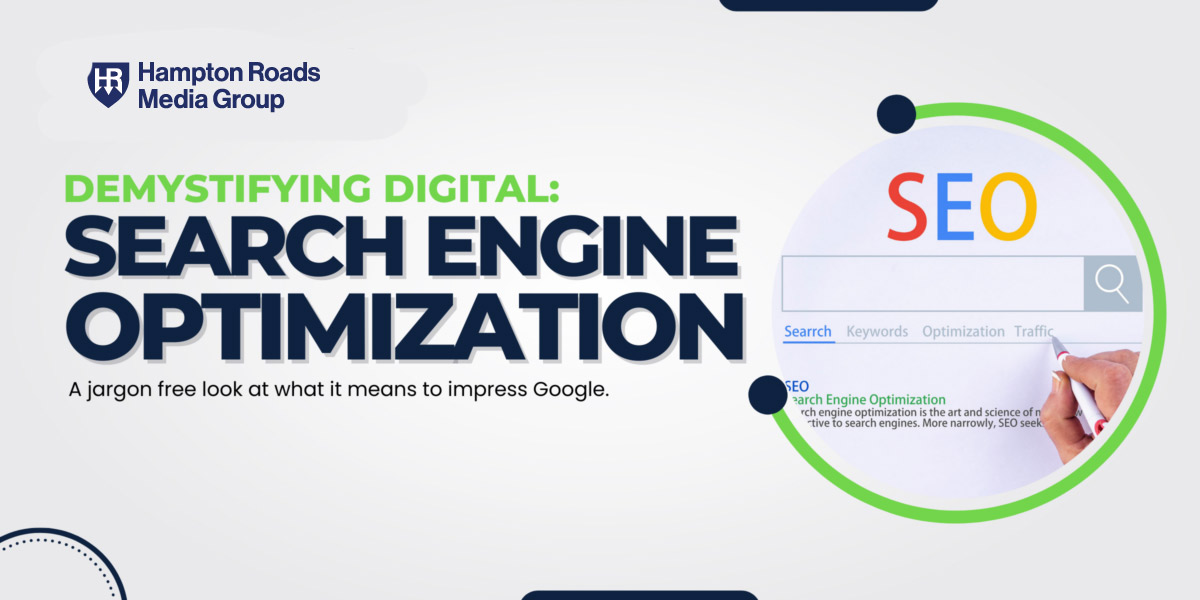Search Engine Optimization goes by the simple moniker “SEO.” This digital technique is the continuous practice of focusing on your website’s structure, content and coding, making it more visible and relevant to search engines.
When people search for something online, they’re often asking questions, looking for services or evaluating product reviews. To be able to spit these results back at lightning-fast speed, search engines look at data to determine where the website should appear on the results page. The most common factors that put your website higher on the results page include:
- Speed– a fast loading website
- Backlinks– having other quality websites link to yours
- Content– both quality and quantity
- Keyword optimization– the right keywords in the right places
- Metadata and codes– this content isn’t visible to a visitor
- Mobile friendly– a responsive website should adjust to fit all screen sizes
When a website is optimized for search engines, the following happens:
- Increase web traffic
- Strengthen brand credibility and business reputation
- Reach target audiences
Major structure and coding optimization may require a subject matter expert, but you can implement several strategies and techniques on your own.
- Mention your location as much as possible
- Set up a Google Business Profile
- Create hyper local content
- Build pages for each brick and mortar location
- Keep your business listings (Yelp, Facebook, Trip Advisor) up to date
Red Flag Alert! If you’ve hired someone to develop your website, search engine optimization should be a huge part of the conversation. From planning to development to maintenance, SEO is an ongoing effort that should not be overlooked.
Check the health of your website with a zero-obligation audit from Hampton Roads Media Group. We’ll highlight your current search engine optimization tactics and offer you advice on how to take it to the next level.


